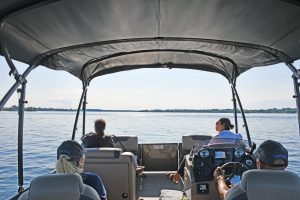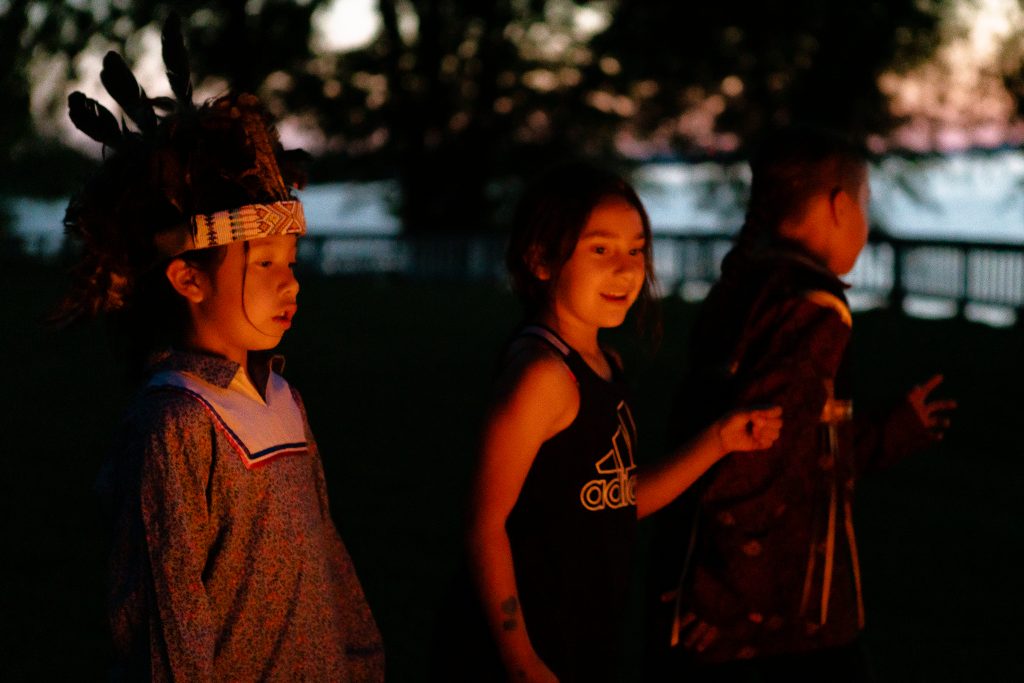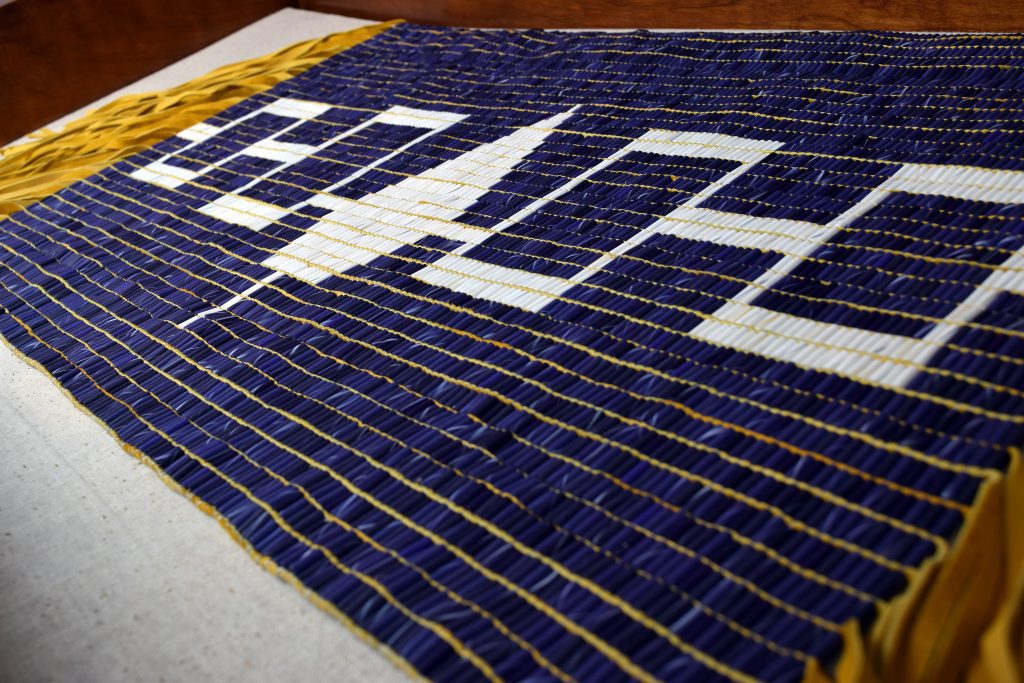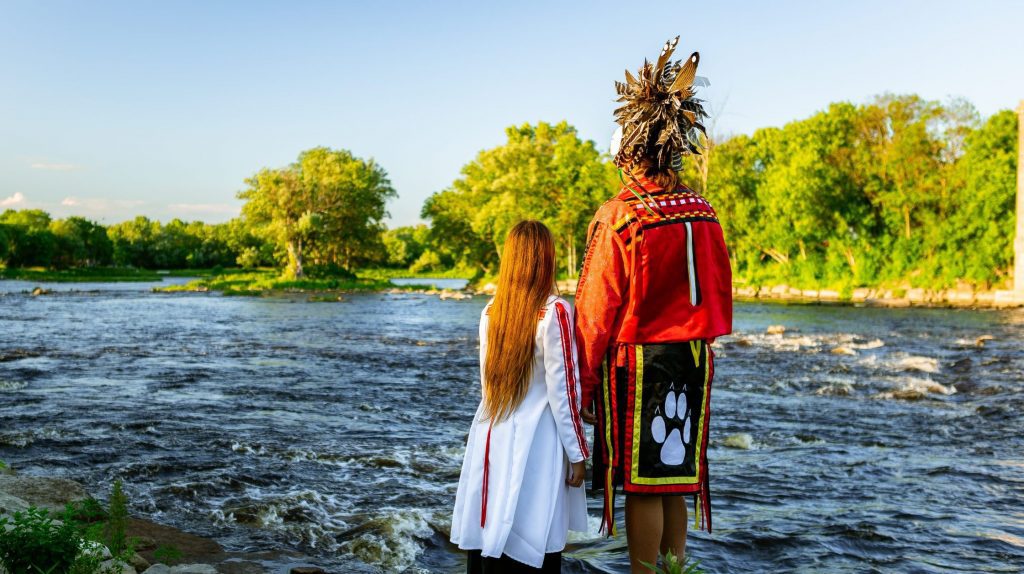Akwesasne, Kanien’kéha for “land where the partridge drums,” rests along the shores of the mighty St. Lawrence River. Three nations–Mohawk, United States, and Canada–meet right here. In fact, this Akwesasne waterway is where the state of New York and the provinces of Quebec and Ontario converge. Akwesasró:non, the people of Akwesasne, have maintained a special connection to this beautiful river for countless generations, relying on it for sustenance, protection, transportation, inspiration, and recreation.
 The views are spectacular, especially at sunset. Boating afternoons around Akwesasne are particularly special, as vistas are filled with cultural and historical landmarks, river activities, and people soaking up sunrays and fresh air from their many water vessels.
The views are spectacular, especially at sunset. Boating afternoons around Akwesasne are particularly special, as vistas are filled with cultural and historical landmarks, river activities, and people soaking up sunrays and fresh air from their many water vessels.




